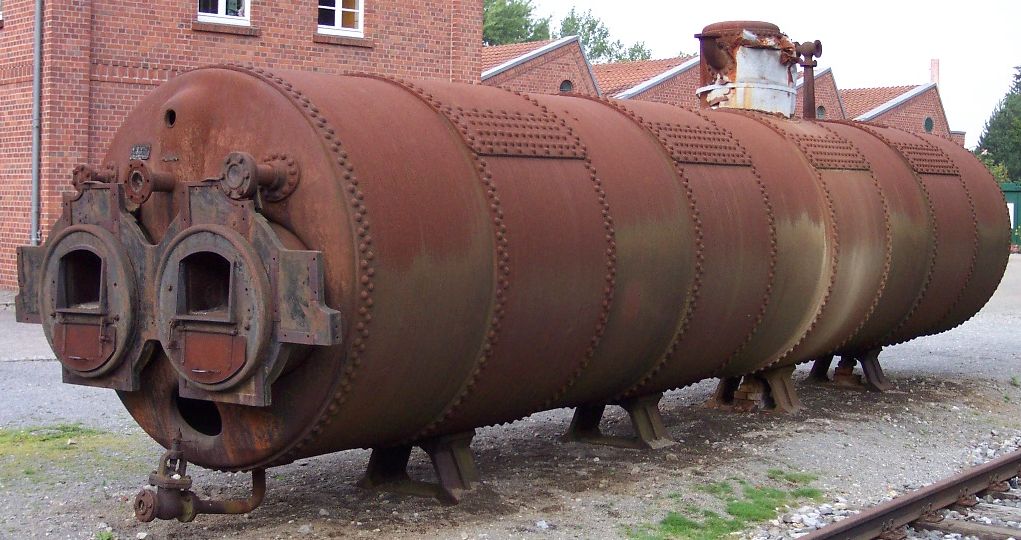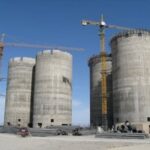FAQ on Boiler Refractory Maintenance in Malaysia

Boilers are commonly used in various industries in Malaysia, including power generation, manufacturing, chemical processing, and heating systems. They play a crucial role in producing steam or hot water for a range of applications, such as powering turbines, heating buildings, and facilitating industrial processes.
The term “refractory boiler” might be a misunderstanding. Refractories are materials that can withstand high temperatures and are often used in the construction of boilers, furnaces, and other high-temperature industrial equipment. So, it’s not a specific industry that uses a “refractory boiler,” but rather industries that use boilers with refractory materials in their construction. This includes industries such as power generation, petrochemical, steel, and manufacturing.
What is boiler refractory
Boiler refractory refers to heat-resistant materials used to line the combustion chamber (furnace) and other high-temperature areas within industrial boilers. These materials help contain heat within the boiler and protect the metal shell from extreme temperatures, thus extending the lifespan of the boiler.
Why is boiler refractory maintenance important
Refractory maintenance is crucial for ensuring the efficient and safe operation of industrial boilers. Properly maintained refractory lining helps prevent heat loss, improves energy efficiency, reduces fuel consumption, minimizes the risk of boiler failure, and ensures compliance with safety regulations.
What are the common types of boiler refractory materials
Common types of boiler refractory materials include fire clay bricks, high alumina bricks, silica bricks, castable refractories, ceramic fiber blankets, and insulating boards. The choice of refractory material depends on factors such as operating temperature, abrasion resistance, thermal conductivity, and chemical composition.
How often should boiler refractory repair be performed
The frequency of boiler refractory repair depends on various factors, including the type of boiler, operating conditions, fuel type, and the quality of refractory materials used. Generally, routine inspections should be conducted quarterly, while major repairs may be required annually or as recommended by the manufacturer.
What are the signs that boiler refractory servicing is needed
Signs that indicate the need for boiler refractory servicing include visible cracks or spalling in the refractory lining, hot spots on the boiler shell, uneven heating, increased fuel consumption, reduced boiler efficiency, and abnormal combustion patterns such as flame impingement or “rolling fires.”
How is boiler refractory maintenance performed
Boiler refractory maintenance typically involves the following steps:
- Visual inspection of the refractory lining for signs of damage or deterioration
- Repair or replacement of damaged refractory materials using appropriate techniques and materials
- Cleaning of refractory surfaces to remove ash, slag, or other deposits
- Application of protective coatings or sealants to enhance refractory performance and prolong service life
Can boiler refractory installation be done in-house or should it be outsourced
Boiler refractory installation can be performed in-house by trained personnel or outsourced to specialized contractors with expertise in boiler refractory repair and maintenance. The decision to insource or outsource depends on factors such as available resources, technical expertise, and cost considerations.
How can I extend the lifespan of boiler refractory
To extend the lifespan of boiler refractory, follow these maintenance best practices:
- Conduct regular inspections and promptly address any signs of damage or deterioration
- Use high-quality refractory materials suitable for your boiler’s operating conditions
- Operate the boiler within recommended temperature and pressure limits
- Avoid sudden temperature changes or thermal shocks that can stress the refractory lining
- Implement proper combustion practices to minimize slagging, fouling, and corrosion of refractory surfaces
What safety precautions should be taken during boiler refractory maintenance
Safety is paramount during boiler refractory maintenance. Some key safety precautions include:
- Following lockout/tagout procedures to de-energize and isolate the boiler before maintenance
- Wearing appropriate personal protective equipment (PPE), including heat-resistant gloves, goggles, and clothing
- Ensuring proper ventilation to prevent exposure to harmful gases or fumes
- Using insulated tools and equipment to handle hot refractory materials safely
- Training maintenance personnel in safe work practices and emergency procedures
How can I find a reliable contractor for boiler refractory maintenance
When selecting a contractor for boiler refractory maintenance, consider the following factors:
- Experience and expertise in boiler refractory repair and maintenance
- References and track record of successfully completed projects
- Compliance with industry standards and regulations
- Insurance coverage and safety record
- Cost competitiveness and ability to meet project timelines
Boiler users in Malaysia
Industries that commonly use boilers with refractory materials include:
- Power Generation: Boilers are widely used in power plants to produce steam, which is then used to generate electricity.
- Petrochemical Industry: Refractory-lined boilers are used in the petrochemical sector for processes involving high temperatures.
- Steel Industry: Boilers play a crucial role in the steel manufacturing process, providing steam for various applications.
- Chemical Processing: Many chemical manufacturing processes require the use of boilers with refractory linings.
- Paper and Pulp Industry: Boilers are used to generate steam for various processes in the paper and pulp manufacturing.
- Food Processing: Certain food processing operations utilize boilers for tasks such as cooking, sterilization, and heating.
- Textile Industry: Boilers are employed in the textile sector for tasks like dyeing and drying.
- Healthcare: Hospitals and healthcare facilities use boilers for sterilization and other purposes.
- Brewing Industry: Boilers are used in brewing for processes like mashing and boiling.
- Pharmaceutical Industry: Pharmaceutical manufacturing processes often require precise temperature control provided by boilers.
- Wood Processing: Boilers are utilized in the wood industry for tasks like drying and pressing.
- Mining Industry: Some mining operations use boilers for ore processing and other applications.
- Cement Production: Boilers are employed in cement plants for processes like kiln heating.
- Automotive Industry: Certain manufacturing processes in the automotive sector involve the use of boilers.
- Plastics Industry: Boilers are used in the production of various plastic products.
- Glass Manufacturing: Glass production processes often require high-temperature steam provided by boilers.
- Rubber Industry: Boilers play a role in the processing of rubber materials.
- Dairy Industry: Boilers are used in dairy processing for tasks like milk pasteurization.
- Distilleries: Boilers are integral to the distillation process in the production of spirits.
- Agricultural Processing: Certain agricultural products, like sugarcane, may involve the use of boilers in processing.
- HVAC Systems: Boilers are used for heating in large-scale HVAC (Heating, Ventilation, and Air Conditioning) systems.
- Electronics Manufacturing: Certain electronics production processes require precise temperature control.
- Waste Management: Boilers can be used in waste-to-energy facilities for the generation of steam from waste.
- Research and Development: Laboratories and research facilities may use boilers for experimental purposes.
- Military Applications: Some military facilities use boilers for various purposes, including field operations.
- Aerospace Industry: Certain aerospace manufacturing processes involve the use of boilers.
- Renewable Energy: Boilers can be part of biomass or solar thermal systems for renewable energy production.
- Textile Printing: Boilers are used in textile printing processes for fixing dyes.




